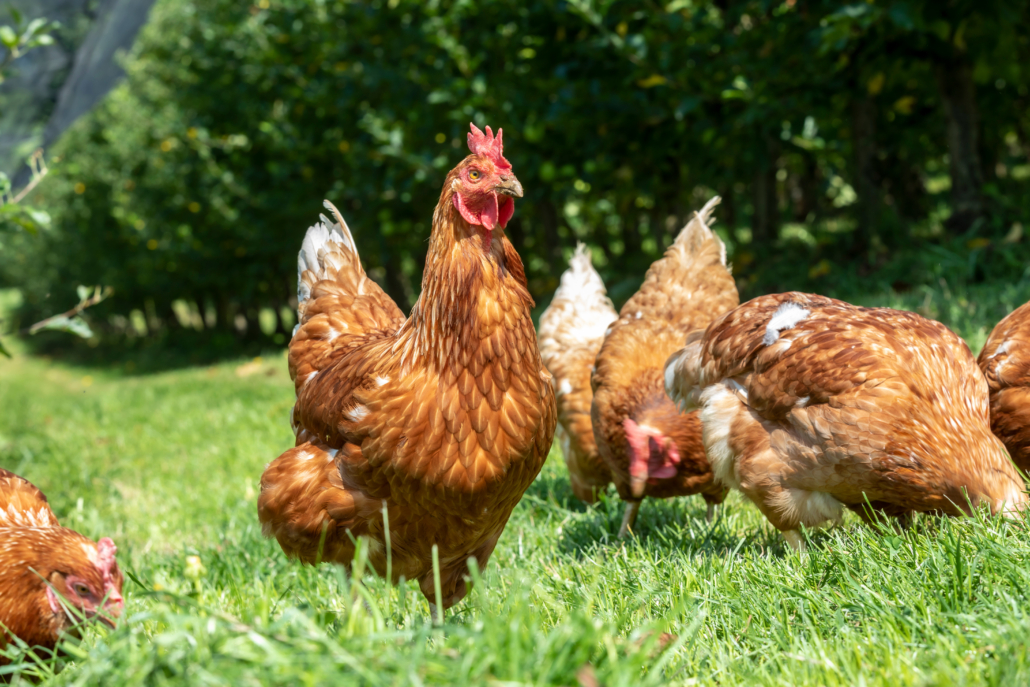
Vitamin and nutrient deficiency are becoming an increasing concern in today’s world. Diet can play a big role in aiding absorption and balancing nutrient levels in your body. Food, in particular pasture-raised eggs, can be a great source of your daily vitamin D intake. [1]
According to research, 24% of Americans are deficient in vitamin D. In other parts of the world, the percentage is even higher. [2] [3]
Our bodies produce vitamin D from sunlight. However, depending on where you live and your exposure, this source alone simply doesn’t account for the levels our bodies need to thrive.
Vitamin D is a nutrient that aids in the healthy function of several physiological systems, including bone health, immunity, and digestion.
According to research, vitamin D deficiency may lead to certain autoimmune diseases and contribute to disability in older age. [4]
In this article, we’ll explore the importance of vitamin D and why eggs can be a great daily source for your health and vitality.
Vitamin D is a unique nutrient in that it can be obtained through both lifestyle (what we eat) and the environment (exposure to ultraviolet-B rays from the sun).
Our skin synthesizes this essential vitamin when exposed to sunlight. Yet, much of the population experiences vitamin D deficiency due to [5]
Since we have limited control over the environmental factors that play a role in our vitamin D production, we can look toward a diet that ensures adequate intake.
Some Vitamin D-rich foods include oil-rich fish (salmon, mackerel), sun-exposed mushrooms, oysters, and, of course, egg yolks.
Vitamin D2 is sourced from plants and dairy, versus vitamin D3, which is sourced from animal protein. Like other important vitamins and minerals, including vitamin K and iron, the vitamin D3 from animal proteins is superior to the vitamin D2 from plant and dairy products. Egg yolks, an animal protein, contain vitamin D3.

The so-called “sunshine vitamin” has a critical role in several systems of our body. Here are some of its central functions:
According to the National Institutes of Health, the amount of vitamin D the body needs to maintain a healthy skeletal system depends on the age of the individual. [15]
Below are the official Recommended Dietary Allowances (RDA):
Additionally, people with darker skin are more likely to have lower levels of vitamin D, and may consider increasing vitamin D levels from diet and supplements. [16] This is due to melatonin, the pigment that makes skin dark, and which shades it from UVB rays thereby reducing vitamin D production from sunlight.
In the United States, almost one out of four people have low or inadequate levels of vitamin D needed to maintain bone and overall health.
Globally, an estimated 1 billion people are vitamin D deficient. These deficiencies span all ethnicities and age groups. [17]

Eggs are a nutrient-dense superfood. While egg yolks can be a great source for your daily vitamin D intake, the amount of the nutrient will vary greatly depending on the chicken’s diet and outdoor exposure.

Pasture-raised chicken eggs have up to 600% more vitamin D than conventional eggs. [20] [21]
Additionally, the pasture-raised approach produces eggs with more vitamins A and E. [22]
Two scrambled pasture-raised eggs can provide over 200 IU of vitamin D. [23]

Vitamin D fortification in eggs can be done in three different ways:
Feed can typically result in higher vitamin D levels than UVB exposure. A recent study suggests that no difference could be detected between the bioavailability of vitamin D fortified foods and supplements. [25]
Vitamin D-enriched eggs can differ greatly from producer to producer. Fortified eggs can offer as much as 700% the amount of Vitamin D per egg. [26]
While there is significant research showing the higher levels of this essential vitamin in fortified eggs, little research has been done to correlate these with high levels in the human body after consumption of vitamin D-enriched eggs. [27]
The effects of vitamin D enriched eggs on human vitamin D levels can be a result of the varying physical characteristics of the individual, geographic location, and time of year. [28]
Packed with a macro and micronutrient blend of healthy fats, proteins, vitamins, and minerals, eggs contain almost everything needed to sustain our body’s most important biological functions.
Here are some reasons to include pasture-raised eggs in your diet today:
2. Minerals – Eggs contain several minerals such as zinc, selenium and phosphorus, aiding in our physiological functions, organ health and immunity.
3. Protein & Healthy Fats – A low-cost, high-value source of protein and essential fats, eggs have a high concentration of lipids, or fatty acids, that promote healthy cell structure and function, as well as communication and metabolism. [31] [32]
4. Improved Fertility – Eggs are a fertility superfood because they contain essential nutrients for conception, including Vitamin A, E, B12, folate, selenium, and zinc.
5. Fetal Development – Eggs contain many nutrients that promote safe fetal development, including iron, vitamin B12, and choline.
6. Antioxidant Support – Research suggests that the protein found in egg yolks may reduce the risk of oxidative stress in the GI tract, thereby reducing inflammation and promoting healthy digestion. [33]
7. Cognitive Function – As noted, eggs are a great source of choline, a nutrient that aids brain health through cellular maintenance and growth, memory, development, and mood.
8. Antimicrobial – Studies suggest that eggs may play a role in reducing harmful gut bacteria. Varying egg proteins can exhibit antimicrobial, antibacterial, and antiviral properties in the gut microbiome. [34]
While our bodies have the capacity to synthesize vitamin D from the sunshine, depending on where we live, our skin type, and the time of year, this option just doesn’t cut it for most people.
Since vitamin D deficiency affects a large portion of our global community, we can look toward diet, specifically pasture-raised eggs, to help maintain adequate levels of this essential nutrient.

We’re a global community of seekers, healers, and doers committed to reclaiming health on our own terms. When you join the Kiltz Mighty Tribe (KMT), you’ll gain access to education, support, and collective wisdom.


